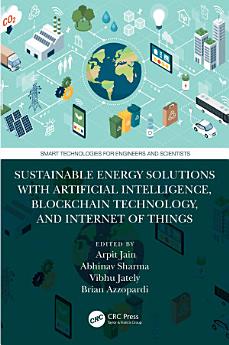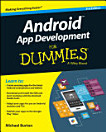Sustainable Energy Solutions with Artificial Intelligence, Blockchain Technology, and Internet of Things
આ ઇ-પુસ્તક વિશે
- Focuses on the integration of smart technology including artificial intelligence and sustainable energy
- Covers recent advancements in energy management techniques used in residential and commercial energy systems
- Highlights the use of artificial intelligence, machine learning, and their applications in sustainable energy
- Discusses important topics such as green energy, grid modernization, smart security in the power grid, and fault diagnosis
- Presents case studies on the applications of the Internet of Things, blockchain, and artificial intelligence in sustainable energy
The text showcases the latest advancements, and the importance of technologies including artificial intelligence, blockchain, and Internet of Things in achieving sustainable energy systems. It further discusses the role of machine learning, applied deep learning, and edge computing in renewable energy. The text cover key concepts such as intelligent battery management system, energy trading, green energy, grid modernization, electric vehicles, and charging station optimization. It will serve as an ideal reference text for senior undergraduate, graduate students, and academic researchers in the fields including electrical engineering, electronics and communication engineering, computer engineering, and environmental engineering.
લેખક વિશે
Dr. Arpit Jain currently working as an AI Practitioner at QpiAI India Pvt. Ltd., India. A multidisciplinary engineer having experience in Machine Learning, Data Science, Control System and Fuzzy Logic systems with an excellent vision towards industry focused education and state of art consulting solutions. A seasoned academician having 12+ years of diverse experience in academics, edtech and IT consulting domain. Worked as Assistant Professor for 10 years at UPES India, a part of Global University System (GUS), Netherlands. Research profile includes Indin patents, research articles in SCI/ Scopus indexed Journals, and edited books with IEEE, Emerald, RIVER, CRC and many other reputed publishing house. He received his B.Eng. degree from SVITS, Indore, in 2007 and M.Eng. from Thapar University, Patiala in 2009, Ph. D. from UPES, India in 2018.
Dr. Abhinav Sharma is presently working as an Assistant Professor (Selection Grade) in the department of Electrical & Electronics Engineering in University of Petroleum & Energy Studies (UPES). He received his B.Tech. degree from H. N. B. Garhwal University, Srinagar, India in 2009 and the M.Tech. and Ph. D. degree from Govind Ballabh Pant University of Agriculture and Technology, Pantnagar, India in 2011 and 2016. He has a rich teaching and diversified research experience. The areas of his research interests include Signal Processing and Communication, Smart Antennas, Artificial Intelligence and Machine Learning. He has published research articles in SCI/ Scopus indexed Journals and in National and International conferences.
Dr. Vibhu Jately received his Ph.D. degree from G. B. Pant University, Pantnagar, India. Following that, he worked as an Assistant Professor under United Nations Development Program within the Department of Electrical and Computer Engineering at Wollo University, Ethiopia. After that he worked as a Post-Doctoral Research Fellow for two years at MCAST Energy Research Group, Malta where he was a Task Leader of European H2020 projects. Currently he is working as an Assistant Professor (Selection Grade) within the Department of Electrical & Electronics Engineering at the University of Petroleum & Energy Studies, Dehradun, India. He has over 8 years of teaching and research experience. His area of interest includes power electronics applications in renewable energy systems and has worked in formulating MPPT algorithms, control strategies in grid integration of PVs, microgrids and optimization algorithms in PV applications. He is an active researcher and has published several research articles in top-quality peer-reviewed journals and international conferences.
Dr. Brian Azzopardi received the BEng (Hons) from UM and PhD from The University of Manchester in 2011. He also received teaching and pedological qualifications from MCAST (2008) and PGCHE from Oxford Brookes University (2012). He is currently working with Malta College of Arts, Science and Technology (MCAST), Visiting Senior Lecturer at the University of Malta (UM) and Consultant. Since 2011, he held senior academic and research positions in United Kingdom and Lithuania, and have served the industry, governments agencies and ministries and research since 1998. He is a Senior Member IEEE and member of the IET, EI, RSC and Chamber of Engineers. In 2008, he received the Eur. Ing. title followed by the CEng and the EI Chartered Energy Engineer titles in 2012. He is an editor and co-author of two books, 100+ research papers in peer-reviewed impact listed journals and conferences, and invited speaker.





